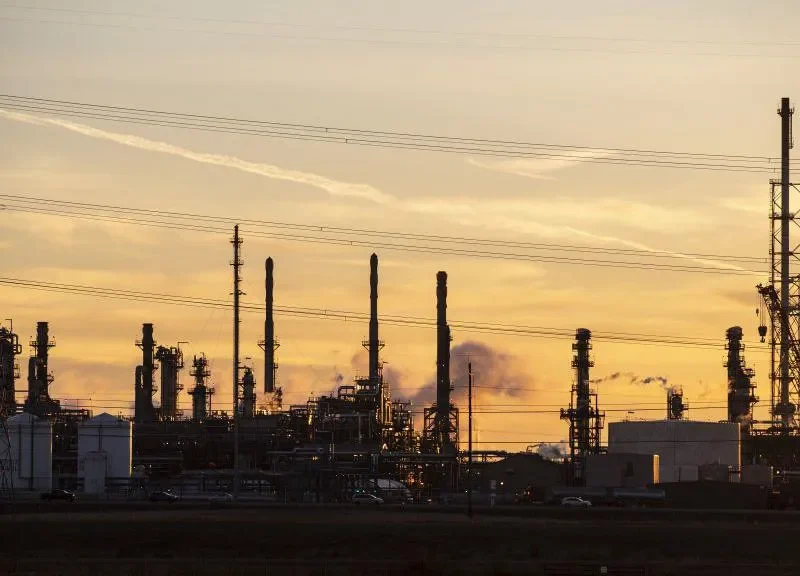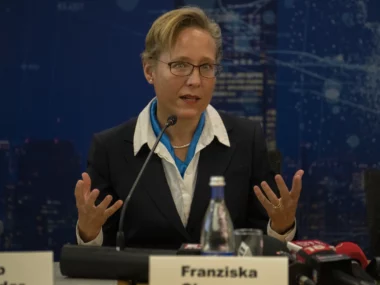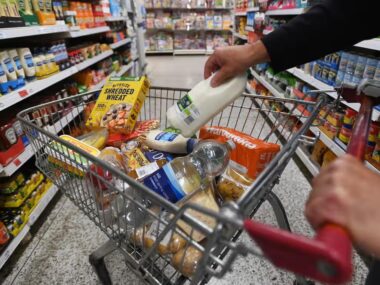In Alberta, Canada’s oil-rich province, there is growing concern over President-elect Donald Trump’s threat to impose a 25% tariff on Canadian goods. Canadian leaders and energy experts warn that such a tariff would have serious economic consequences for Canada and raise costs for U.S. consumers.
Dennis McConaghy, a former energy executive in Alberta, emphasized that Canada would have to negotiate with Trump to avoid economic harm. Trump’s plan, announced in January, included imposing a broad tariff on both Mexico and Canada, with no indication that oil and gas would be exempt.
Lisa Baiton, president of the Canadian Association of Petroleum Producers, noted that the tariff could reduce Canada’s oil production. McConaghy added that Alberta’s job losses could ripple through the country, as wealthier provinces like Alberta help support poorer provinces through financial transfers.
The tariff could also weaken the Canadian dollar, already struggling due to domestic economic factors. With around 80% of Canada’s trade tied to the U.S., and much of that involving hydrocarbons, Canada’s economy is deeply integrated with the U.S.
U.S. fuel producers have urged Trump to exclude oil and gas from any tariff plans, as American refineries depend heavily on imported Canadian crude. The American Fuel and Petrochemical Manufacturers (AFPM) pointed out that crude oil is crucial to refineries, much like flour to bakeries. A tariff on Canadian oil could significantly raise fuel production costs in the U.S., especially in regions like the Midwest, where Canadian crude is vital.
This would likely lead to higher gasoline prices in states like Minnesota, Wisconsin, and Michigan, potentially increasing costs for consumers, airlines, and freight companies. The higher oil prices would contradict Trump’s campaign promise to lower energy costs.
While Trump has pledged to reduce U.S. reliance on foreign oil by boosting domestic production, it is unclear whether the tariff will be implemented. Analysts suggest Trump may use the threat as leverage in negotiations with Canada and Mexico, particularly regarding border security.

Alberta Premier Danielle Smith has stated that she will be “working aggressively” in the coming months to strengthen ties with the Trump administration.
Prime Minister Justin Trudeau has vowed to present a united “Team Canada” approach and collaborate with the incoming Trump administration to prevent blanket tariffs. Leaders from key Canadian provinces, including Ontario, Quebec, and Alberta, have called for swift action, prompting Trudeau to hold an emergency meeting with provincial and territorial leaders to strategize.
Alberta Premier Danielle Smith expressed that her province will be “working aggressively” to build connections with U.S. counterparts and emphasize the importance of a strong partnership with Canada for U.S. energy security. Smith acknowledged that Trump and his supporters have valid concerns about border security and, alongside other premiers, urged Trudeau to create a comprehensive plan.
Additionally, Smith mentioned Alberta’s consideration of establishing specialized sheriff units to patrol its border with Montana. Dennis McConaghy hopes Canadian officials act swiftly to remove the risk of tariffs from the table.











